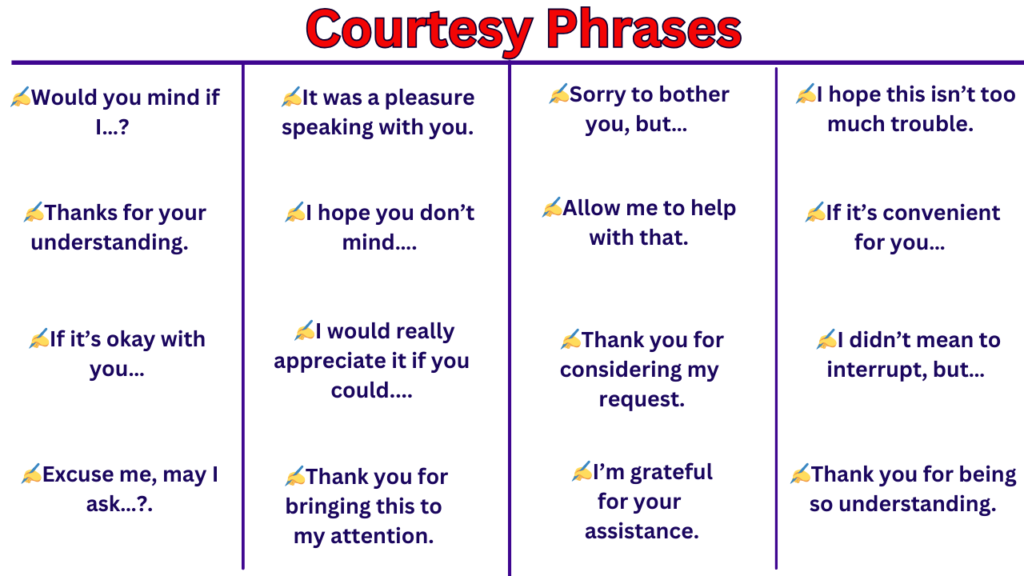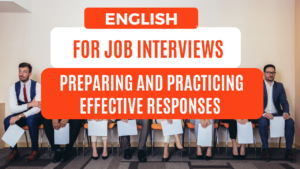Essential Daily English Phrases for Beginners to Speak Confidently

Introduction
Learning a new language is similar to embarking on a new journey, full of hiccups, opportunities and achievements. Beginners often feel overwhelmed and most of them quit soon after they take the first step forward. Don’t worry! I’m here to support you all the way through. I’ve brought this blog post to help you get started. It will guide you through the most commonly used daily English phrases to help you use English effortlessly and confidently, in any situation. These basic English phrases are carefully selected to enhance the experience of your language acquisition journey, ensuring that you can communicate efficiently and effectively.
The Importance of Daily Practice Of Phrases
Daily practice of common phrases enhances your command on English language. Through repeated usage your retention is higher and it, eventually, leads to having more confidence in using English comfortably, in any situation.
It strengthens neural connections in the brain. Through repetition, these sentences go deep down in your memory enabling you to recall them at will. Over the time, this process become effortless and your speech becomes natural.
Repetition helps these basic English phrases go deep into your memory, allowing for quicker recall and better comprehension. Over time, continuous exposure to daily English phrases facilitates ability to use English naturally without much thought.
Remain consistent all through your learning journey. Also, keep your motivation level up by celebrating small achievements. Challenge yourself to use English phrases in situations, you have never used before. That way, you gain confidence much faster. Also, you can practice with language learning apps or with any learning buddy.
Essential Phrases for Everyday Situations
You must understand the context of each of the following daily English phrases and tweak them as per your requirement. Let’s dive in!
1. Greetings and Introductions

Greetings prove to be a great way to set the tone for any interaction. Cultural nuances also play a role in greetings and introductions. In many English-speaking countries, it’s customary to shake hands upon meeting someone for the first time. In more casual situations, a simple nod or a smile may suffice. Understanding these subtle differences can further enhance your ability to greet and introduce yourself appropriately in various settings.
Here are some essential English phrases to help you with greetings and starting the conversations:
- Hello! How are you? – A friendly and universal greeting.
- Good morning/afternoon/evening! – Depending on the time of day, use these greetings.
- Nice to meet you! – Use this when you meet someone for the first time, to express pleasure of meeting.
- What’s your name? – A simple way to ask someone their name.
- I’m [Your Name]. – Introduce yourself with confidence.
- Where are you from? – A common question to start a conversation and help someone open up.
Example: Person A: Hello! How are you?
Person B: Good morning! I’m doing well, thank you. How about you?
Person A: I’m great, thanks! Nice to meet you. I’m Rashmi.
2. Asking for Information
In any new place or situation, it is vital to have more information and ask for help. Here are some phrases to help you:
- Where is the nearest [place]? – Whether it’s a railway station, bus stop, or restaurant, this phrase will help you find your way.
- How much does this cost? – It can be used when you’re shopping and need to know the price.
- Can you help me? – A polite way to ask for assistance.
- What time is it? – Useful for keeping track of time during your day.
- Could you please repeat that? – If you didn’t understand something, using this phrase politely will help you get more clarity.
- How do I get to [place]? – Ask for directions to reach your destination.
Example: Person A: Excuse me, where is the nearest supermarket?
Person B: It’s just down the street, on the left.
Person A: Thank you! And how much does this bottle of water cost?
3. Everyday Activities
There are many English phrases worth using in our daily routine. Some of them are:
- I would like [item]. – Use this when ordering food, drinks, or any item.
- Can I have the bill, please? – Use this when you’re ready to pay at a restaurant.
- What’s the Wi-Fi password? – An essential phrase in today’s digital world.
- Do you accept credit cards? – Use this to check if the place accepts payment through cards.
- I’m looking for [item]. – Easy to use when you’re shopping and need to find something.
Example: Person A: I would like a cup of coffee, please.
Waiter: Sure! Anything else?
Person A: No, that’s all. Can I have the bill, please?
4. Expressing Likes and Dislikes

Sharing your preferences makes you more approachable. Here are some basic English phrases to express what you like or don’t like:
- I like [activity/thing]. – A simple way to share your interests.
- I don’t like [activity/thing]. – Express what you don’t enjoy.
- My favorite [food/music/place] is [item]. – Share your favorites with others.
- I’m not a fan of [activity/thing]. – A polite way to express dislike.
- I love [activity/thing]. – Show enthusiasm for something you really enjoy.
Example: Person A: Do you like pizza?
Person B: Yes, I love pizza! My favorite kind is pepperoni.
Person A: I like it too, but I’m not a fan of mushrooms.
5. Making Plans and Invitations
While inviting someone or making plans use specific daily English phrases to avoid any communication gap:
- Would you like to do [activity]? – A polite way to invite someone to do something.
- Let’s [activity]. – A friendly suggestion for doing something together.
- What time shall we meet? – Important for setting up a specific time.
- How about [time/place]? – Offer a suggestion for the time or place.
- See you at [time/place]! – Confirm the details of your plan.
Example: Person A: Would you like to go to the movies tonight?
Person B: Sure! What time shall we meet?
Person A: How about 7 PM at the cinema?
Person B: Sounds good! See you at 7!
6. Expressing Gratitude and Apologies
Gratitude and apologies related to manners. One must use them in conversation, for better impact:
- Thank you! – The simplest way to express gratitude.
- Thanks a lot! – A more emphatic way to say thank you.
- I really appreciate it. – Show deeper gratitude.
- I’m sorry. – Use this for minor mistakes or apologies.
- Excuse me. – A polite way to get someone’s attention or apologize for a small interruption.
- No problem! – A friendly way to say “You’re welcome.”
Example: Person A: Thank you for your help!
Person B: No problem! I’m glad I could assist.
Person A: I’m sorry if I interrupted you earlier.
Person B: No worries! It’s all good.
7. Basic Conversational Phrases
Use these basic English phrases to kickstart conversation, in any situation:
- How’s it going? – A casual way to ask how someone is.
- What’s up? – Another informal way to start a conversation.
- That sounds great! – Use this when you agree with something.
- I see. – Show that you understand what someone is saying.
- I’m not sure. – If you don’t know something, this phrase comes in handy.
- Could you please explain that? – Ask for clarification if you don’t understand something.
Example: Person A: How’s it going?
Person B: Pretty good, thanks! What’s up?
Person A: Not much. I’m just planning my weekend.
Person B: That sounds amazing! Any special plan?
8. Dealing with Problems
There may be situations when you land in trouble and need help from someone. These phrases come handy in such situations:
- I have a problem with [thing]. – Use this to start explaining an issue.
- Can you help me fix this? – Ask for assistance in solving a problem.
- It’s not working. – Whether it’s an appliance or a plan, this phrase is useful.
- I need some help with [thing]. – A straightforward way to request help.
- This isn’t what I expected. – Express disappointment politely.
Example: Person A: Excuse me, I have a problem with my order.
Waiter: I’m sorry to hear that. What seems to be the issue?
Person A: The food is cold. Can you help me?
Waiter: Of course! I’ll get that sorted right away.
9. Asking for and Offering Opinions
Sharing opinions is a great way to engage in meaningful conversations. Here’s how to do it:
- What do you think about [topic]? – Ask for someone’s opinion.
- In my opinion, [statement]. – Share your thoughts on any subject.
- I agree/disagree with [statement]. – Express your agreement or disagreement.
- That’s interesting! – Show interest in someone’s opinion.
- I’ve never thought about it that way. – Acknowledge a new perspective.
Example: Person A: What do you think about this movie?
Person B: In my opinion, it’s really entertaining. The storyline is gripping.
Person A: I agree! The characters are very well-developed.
10. Everyday Small Talk
Everyday small talk is inevitable when it comes to building connections. Here are some examples:
- How’s the weather? – A time-tested conversation starter.
- Did you hear about [news]? – Talk about current events or popular topics.
- What are your plans for the weekend? – A common question to engage in casual conversation.
- I love your [item]! Where did you get it? – Compliment someone and start a friendly chat.
- That’s so cool! – Show enthusiasm in a casual conversation.
Example: Person A: How’s the weather today?
Person B: It’s sunny and warm. Perfect for a walk in the park!
Person A: That sounds nice! Do you have any plans?
11. Phrases for Travel and Transportation
When you’re on the go, these phrases can be quite helpful:
- Where is the bus/train station? – Find your way to get to the transportation hubs.
- I need a taxi, please. – Use this when you need to catch a cab.
- How much is the fare? – Ask about the cost of your trip.
- Can you take me to [place]? – Instruct a driver on your destination.
- Is this seat taken? – Check if a seat is available.
Example: Person A: Where is the train station?
Person B: It’s just around the corner.
Person A: Thank you! I need a taxi to the airport.
12. Common Courtesy Phrases

Being polite can go a long way in winning people’s heart. Here are some basic English phrases to help you stay courteous:
- Please. – Add this to requests to be polite.
- Thank you so much. – A stronger way to express gratitude.
- You’re welcome. – Use this in response to “thank you.”
- Excuse me, could I…? – A polite way to make a request.
- Sorry to bother you, but… – Start a request or question while going to interrupt some conversation.
Example: Person A: Excuse me, could I ask you a question?
Person B: Of course! What do you need?
Person A: Could you tell me where the nearest ATM is?
Person B: It’s just down the street.
Person A: Thank you so much!
Person B: You’re welcome!
13. Ordering Food at a Restaurant
Ordering food is a common situation where basic English phrases come in handy. Here are some key phrases to use:
- Can I see the menu, please? – Use this to see the menu
- I would like to order [dish]. – This can be used to order the dish of your choice.
- Can I have the bill, please? – Finally, use this to ask for the bill.
Example:
Customer: Can I see the menu, please?
Waiter: Of course, here it is.
Customer: I would like to order the spaghetti and a glass of water.
Waiter: Sure, I’ll bring your order shortly.
Customer: Thank you. And, can I have the bill, please?
14. Making Purchases
One needs to go shopping frequently, for various needs. Here are some essential phrases for purchasing something:
- How much does this cost? – To know the price of some item
- Do you accept credit cards?– Use this to check the payment methods available
- Can I get a receipt, please?– A polite way to ask for a receipt
Example:
Customer: How much does this cost?
Salesperson: It’s Rs 3000.
Customer: Do you accept credit cards?
Salesperson: Yes, we do. Would you like a receipt?
Customer: Yes, please.
Pronunciation tips:
Practice saying these essential English phrases slowly and clearly. Focus on stressing the correct syllables and using the right intonation to convey your message effectively. For instance, when asking a question, raise your intonation slightly at the end of the sentence.
Frequently Asked Questions (FAQs)
1. What are daily English phrases, and why are they important for beginners?
Daily English phrases are commonly used expressions that help you sound more natural in everyday conversations. They make it easier to greet people, ask questions, and respond confidently in real-life situations. Learning daily English phrases for beginners is a great way to build fluency without memorizing complex grammar rules.
2. How can I start learning daily English phrases effectively?
Begin with simple English phrases for daily use, such as greetings, requests, and polite expressions (“How are you?”, “Could you please help me?”, “Nice to meet you”). Practice them in real situations—like at work, in class, or while texting friends—to make them part of your natural speech.
3. What’s the difference between daily English phrases and everyday English phrases?
There’s not a big difference! Daily English phrases usually refer to short, ready-to-use sentences you can use every day, while everyday English phrases may include idioms or expressions for both casual and professional conversations.
4. Are there any books or PDFs to learn daily English phrases?
Yes, you can find a daily English phrases book or download an everyday English phrases PDF online. These resources often include examples, pronunciation guides, and translation notes that make learning much easier.
5. How can I practice daily English phrases on my phone?
Use a daily English phrases app that offers listening, speaking, and repetition exercises. Apps often provide pronunciation feedback, flashcards, and daily English sentences you can repeat aloud for fluency improvement.
6. What are some common daily English phrases I should know first?
Start with common daily English phrases like:
- “What’s up?”
- “I’m on my way.”
- “That sounds great!”
- “Let’s catch up soon.”
These short and natural phrases help you sound more confident and friendly in everyday situations.
7. Can advanced learners also benefit from daily English phrases?
Absolutely! Even advanced speakers use daily English phrases advanced to maintain fluency and sound natural. Knowing how to use simple, natural expressions keeps your communication clear and relatable, even in professional contexts.
8. How do I remember useful daily English phrases for long-term use?
Repeat them aloud, use them in your conversations, and write your own daily English sentences with those phrases. Consistency and context-based practice are key to remembering what you learn.
9. Are there any online courses that focus on daily English phrases?
Yes, several online platforms include business and daily English speaking courses where you can learn useful daily English phrases through real-life dialogue practice and listening activities.
10. How can I track my progress while learning English phrases for daily use?
Keep a small notebook or use an app to record new daily English phrases for beginners each day. Review and test yourself regularly by forming new sentences or engaging in short conversations with native or fluent speakers.
Conclusion:
Learning daily English phrases is an excellent way to be more confident in using English language in real-life scenario. These phrases serve as essential tools to keep the conversation going. Before using them, check the contexts and make changes accordingly.
Setting realistic and achievable goals is a crucial part of your language-learning process. Break down your objectives into smaller manageable tasks—like learning five new phrases each week or practicing speaking for ten minutes daily. These small but consistent efforts will do magic over time, leading to substantial progress.
Remember, practice makes one perfect. The more you use them, the more natural they’ll become. Soon, you’ll find yourself speaking English with ease and confidence.
So go ahead, start practicing these phrases today, and watch as your English skills grow!
Want to learn new English words faster?
Grab my ebook : Talk Like A Pro : English Words for Real-Life Situations – having meaning of every word put into specific categories, along with relevant examples.
Share your thoughts:
What daily English phrases did you find most useful? Share your favorites in the comments below! And if you found this guide helpful, don’t forget to share it with your friends who are also learning English. Let’s master English together!
I create content to make English learning simple and practical. If you find it helpful, consider supporting me Your contribution helps me improve my skills and bring better content for you.




Superb post but I was wanting to know if you could write a litte more on this topic? I’d be very thankful if you could elaborate a little bit more. Bless you!
Sure! will post details soon. Thank you!
Great web site. Lots of useful info here. I am sending it to a few pals ans additionally sharing in delicious. And obviously, thank you in your effort!
Thank you!
I got what you mean , thankyou for putting up.Woh I am glad to find this website through google.
Thank you! I’m glad that I could be of help. 🙂
great points altogether, you simply gained a brand new reader. What would you recommend in regards to your post that you made a few days ago? Any positive?
Thank you for your comment! Which post are you referring to? Please elaborate your question.
You are my intake, I own few blogs and infrequently run out from to brand.
Thank you!
of course like your web site however you have to check the spelling on several of your posts. A number of them are rife with spelling issues and I find it very troublesome to inform the truth nevertheless I will definitely come again again.
Thank you for your honest feedback. I’m sorry for the mistakes you noticed and I’ll certainly fix them. Keep sharing your views as you read more posts!
Wow, marvelous weblog layout! How lengthy have you been blogging for? you make blogging look easy. The full look of your web site is excellent, as smartly as the content!
Well! It’s been more than a year. Thank you for encouraging me.
After study a number of of the weblog posts on your website now, and I really like your manner of blogging. I bookmarked it to my bookmark web site record and shall be checking again soon. Pls take a look at my website as nicely and let me know what you think.
Thank you for your honest feedback! I could have shared my opinion but you haven’t share your website details.
Great line up. We will be linking to this great article on our site. Keep up the good writing.
Thank you so much for the kind gesture!
Very nice info and right to the point. I am not sure if this is truly the best place to ask but do you folks have any ideea where to employ some professional writers? Thanks in advance 🙂
Thank you for your feedback! I don’t hire writers because I write all my posts. Therefore, I don’t have any idea where to find them.
I consider something genuinely special in this website .
Thank you! Keep visiting for more.:)
Great post, you have pointed out some great points, I also conceive this s a very wonderful website.
Thank you for your feedback!
Deference to author, some good entropy.
Thank you for your feedback!
I believe you have noted some very interesting details , thanks for the post.
You’re welcome! Subscribe for more
Wow, incredible weblog layout! How lengthy have you ever been blogging for? you made running a blog look easy. The whole look of your website is fantastic, as well as the content!
Thanks for your lovely feedback! You made my day.
I have discovered some significant things through your blog post.
Thank you for your feedback!
Excellent read, I just passed this onto a friend who was doing some research on that. And he actually bought me lunch because I found it for him smile Thus let me rephrase that: Thank you for lunch!
That’s really very sweet! I’m glad you found my blog helpful. Thank you!
I have been surfing on-line more than 3 hours nowadays, but I never discovered any attention-grabbing article like yours. It is beautiful worth enough for me. Personally, if all website owners and bloggers made good content material as you did, the net will be a lot more helpful than ever before.
Your feedback boosts my morale! Thank you for expressing your opinion. 🙂
Good day! I could have sworn I’ve been to this site before but after browsing through some of the post I realized it’s new to me. Anyhow, I’m definitely delighted I found it and I’ll be book-marking and checking back often!
Thanks for sharing superb informations. Your web-site is very cool. I’m impressed by the details that you have on this blog. It reveals how nicely you perceive this subject. Bookmarked this web page, will come back for more articles. You, my pal, ROCK! I found simply the information I already searched everywhere and simply could not come across. What an ideal web site.
Thank you for the detailed feedback!
I have been absent for some time, but now I remember why I used to love this site. Thanks, I will try and check back more frequently. How frequently you update your web site?
What a stuff of un-ambiguity and preserveness of valuable experience concerning unexpected feelings.